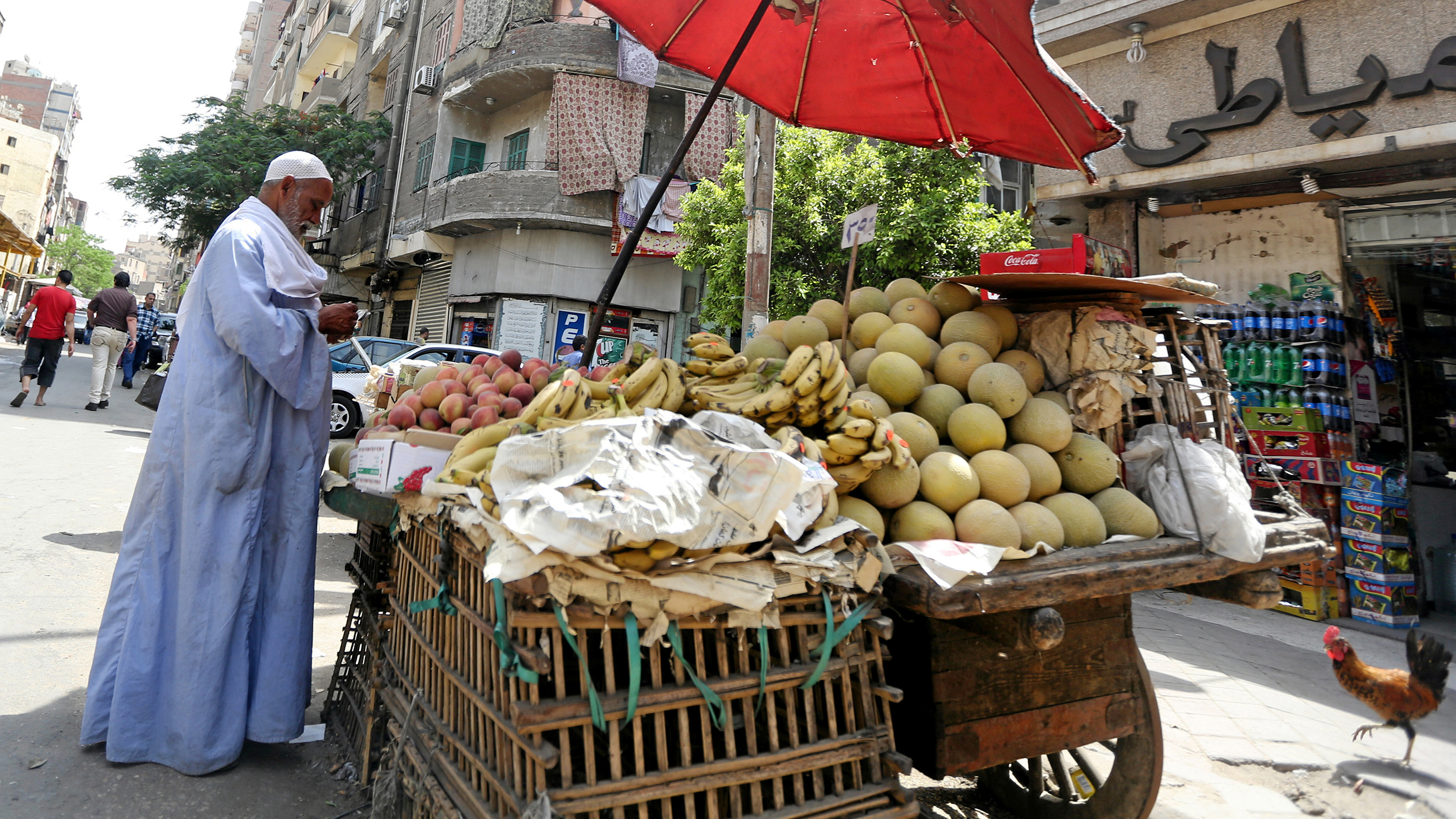The crisis of the volcanic ash cloud resulted in a five-day export freeze on all goods from Egypt to any part of Europe, resulting in a significant quantity of rotten fruits and vegetables.
“Of course our exports to Europe have been affected dramatically during the past few days, a maximum of 10 percent of the exports took place,” said Foad Soliman, general manager of export tariffs at Cairo International Airport.
Product export takes place through national and international airlines, which confirmed that they canceled all flights carrying exports for a period of five days.
International airlines tried to work with their clients to help them avoid the expected losses. “We canceled all of our flights and informed our customers in advance,” said the General Manager of Air France Cargo at Cairo International Airport, who preferred to remain anonymous.
Nonetheless, this situation still resulted in significant problems for export companies. Some customers had already shipped their goods to the airport, and in these cases, the airlines paid to refrigerate the produce within the cooling area of the airport, said Ibrahim Saeed, general manager of Egypt Air Cargo at Cairo International Airport.
Despite being informed in advance and having their goods stored in fridges, several businesses suffered significant losses since fruit and vegetables exported to Europe have a five-day expiration period.
“Many companies exporting vegetables have losses that reached LE100,000 during this crisis,” said Mohamed Abdel Karim, manager of Egypt Express. Abdel Karim works with Impress, Green Egypt and Merit on their fruit and vegetable exports.
The Krobics Export Company lost LE100,000 during the crisis, because they green beans they were going to ship to Frankfurt, Germany are all rotten now, said Abdel Karim.
In addition to export companies, airlines lost a significant amount of money as well. Lufthansa Cargo’s losses reached US$2.2 million, as the company had to pay for refrigeration and was unable to export goods to Europe, said Hossam Hanna, handling manager for Lufthansa Cargo at the Cairo International Airport.
However, some companies were able to limit their losses through planning. Almaghrabi Export Company, one of the leading export companies took preventative measures. “We did not remove fruit or vegetables from the fields once the volcanic ash cloud crisis began,” said an employee in the company who chose to remain anonymous.
These rotten vegetables could be used as animal food, which may help with the current meat crisis,” said Ahmed Abdallah, a livestock breeder.
Cargo trips resumed 20 April, after the five-day freeze.
According to a delegation from the EU Commission, Egypt’s exports to the European Union represent only 8 percent of its total exports to the bloc.
In 2007, Egypt’s agricultural exports to the EU reached 604 million Euros.
Egypt




